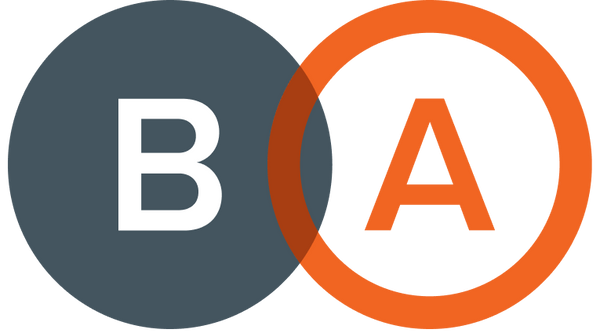You can be the brightest spark there is but if you don’t have anyone helping you make connections and referrals you’ll have a much harder time trying to get yourself noticed and making progress.
Well guess what, Google is just the same when it comes to trying to get your website up the rankings and noticed by more people - just like you, your website needs to be well connected. And the way a website makes connections is via links to and from other sites.
Since Google started links have played an integral part in the search algorithms that determine how your site is ranked for any given search term. But before you go crazy and start inserting as many links as you can find, there are a few things you should know.
Outbound links - Who you know
This is the easiest part of increasing your website's links and getting it noticed because anyone can add an outbound link to another website. Firstly, you don't Google to penalise you for spamming links. Additionally, the links that you're adding need to be good quality otherwise Google will penalise you for being associated with poorly ranking websites.
The experts at Backlinko, completed a study on all of the factors that influence search rankings and it's clear that Google is trying very hard to make sure that all websites on the internet reach their standard. Basically, Google is very good at determining a good site from a bad one.
Websites with the domain extension .eu and .gov along with Google News websites are often then best types of sites to link as they carry a lot of authority and have a high reputation. So much so that they're sometimes known as the Holy Trinity of websites. But if you link to such sites too much you’ll be penalised for overdoing it. So take it easy and focus on quality not quantity.
Who knows you - Inbound links
Good references are important to any business, they can make the difference between success and failure. In Google terms this means getting great, authoritative websites linking to yours. As mentioned above, Google prefers some websites over others and that is why it is highly desirable to try and get a university, government or reputable news site writing about and linking to your website. Obviously this is easier said than done - you can't just demand that a uni links to your site - so a Degrees of Separation approach can be used. For example, if a university links to another site, and then that site then links to you, that’s still very good for your rankings. This can take a bit of time to research carefully, but with a bit of work can yield a great list of juicy potential link opportunities.
With the Degrees of Separation method the amount of websites between yours and a university/government/Google News site affects the good Google juice that flows to you. That said, if all of those websites are fairly reputable, it shouldn't have a negative effect on your search ranking.
Just as getting links from great websites is good for your website's Google reputation, getting links from bad sites can harm it. For this reason alone, looking at who has linked to you is a crucial step in link building because you’ll want to try hard to make sure that Google isn’t associating you with anyone you’d prefer not to be associated with.
How you can do it
The best way to naturally build outbound links into your site is to introduce a blog section (something you really should have already). Within your blog you can write about whatever you feel like, but keep it relevant to your business - you don't want to confuse potential customers about what your business actually does. In your blog weave in links to articles you’ve recently read or to studies that are applicable to your business. Creating regular blog posts actually kills two birds with one stone - you'll create good links and lots of new content for your site that Google will love. So get writing already!
Building inbound links is different matter. Hopefully as your reputation grows and the quality and quantity of your fantastic blog posts increases you will pick up more links naturally - other websites will link to you as a leader/authority in your field without you asking. But you'll also need to reach out to some businesses and ask for links. You could suggest they write a blog post about a particular subject - or even write it for them.
Link building is crucial to a company’s success and one that everyone should be really working on. It is easy to do and very simple to gain an understanding of. If your are wise with who you link to, and diligent on who’s linking to you, the only way is up.
Now what?
Link building - like most of SEO - is an ongoing process. You should be linking to reputable websites as you create regular content for your website. On the other hand, gaining inbound links is a bit more complicated. Reach out to writers and business for potential links and suggest they write a blog that relates your business on your website. Moreover, you should also be wary of who is linking your website. You can check your website's backlinks with tools such as Ahrefs and Semrush. If this is all a bit too confusing, contact us today to find out how we can help.
